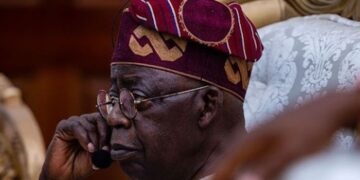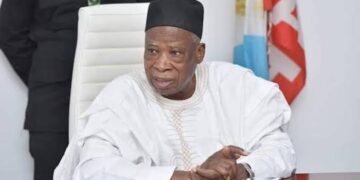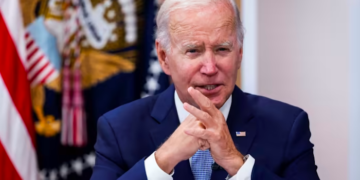Central Bank of Nigeria (CBN) has reassured that it will continue to make deliberate efforts in the foreign exchange sector in an attempt to forestall further downward slide of the naira, which it said was fuelled by speculative tendencies.
CBN corporate communications chief, Mr. Osita Nwanisobi, urged Nigerians to stay away from speculative activity in the foreign exchange market, saying that doing so may lead to financial ruin.
Mr. Godwin Emefiele, governor of the Central Bank of Nigeria (CBN), reiterated his earlier call for Nigerians to play a role in finding inventive solutions to the country’s problems by altering their consumption patterns and looking inwardly.
To deal with Nigeria’s foreign exchange issues, he asserted that monetary policy alone could not handle all of the predicted adjustments, and warned: “It is our collective duty as Nigerians to shore up the value of the Naira.”
As a result, the Central Bank of Nigeria (CBN) has been working on both the demand and supply side obstacles in order to resolve the country’s foreign exchange problems, he said.
Recently implemented CBN Bank initiatives like RT200 FX Program and Naira4Dollar rebate program have helped improve foreign exchange influx into Nigeria,” the official claimed.
RT200 FX Program foreign exchange inflows surged dramatically to roughly US$600 million in the first and second quarters of 2022, according to his data at the bank, he said.
It was also revealed that the Naira4Dollar incentive had an impact on overseas remittances during the first half of this year.
He added that “interventions such as the 100 for 100 Policy on Production and Productivity, Anchor Borrowers’ Program (ABP) and the Non-Oil Export Stimulation Facility (NESF), among others, were also geared toward diversifying the economy, increasing inflow of foreign exchange and Stimulating production, as well as reducing foreign exchange demand.”
As he acknowledged a significant demand for foreign exchange in Nigeria, Mr. Nwanisobi stated that he was concerned about the international value of the naira and the monetary authority’s strategy to help Nigeria earn more stable and sustainable inflows of foreign exchange in the face of dwindling inflows from the oil industry.





























